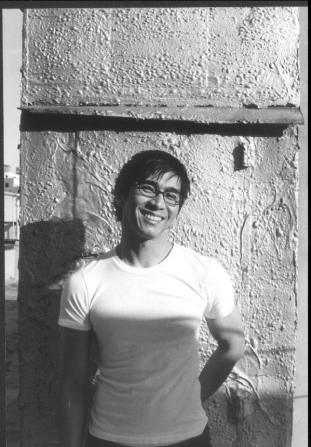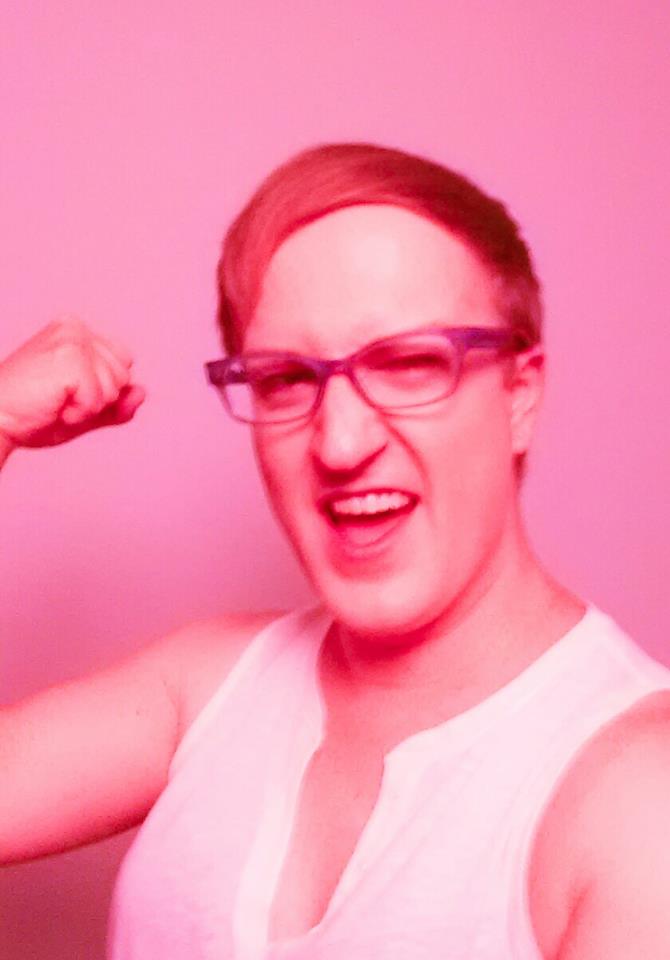Sitting in our literature classes the curriculum is often riddled with aged white heterosexual males. Now – I am partial to a bit of Dickens, and Shakespeare. However, diverse writers are not often touched upon in great lengths, I find. Different visions, ideas. Sexuality is often still very taboo. When, in truth, sexualities of all kinds, love of all types is raw yet beautiful. We may all wonder, as we flick through our pieces by names such as Shakespeare or Austen in our literature lessons – when this black and white lens of heterosexuality within our curricular pieces will make room for other colors. Poetry is something we can perhaps find empathy and understanding through. By engaging with diverse voices through literature we may find our mind opened. After all, representation matters. The least poetry can do is make one feel understood.
There are many LGBT+ poets to discover, the list must be endless. Though this is a select few to break up the heteronormativity in life:
1. Sappho
Sappho is a c.7th century B.C classical archaic Greek poet from the island of Lesbos. She is documented to have been bisexual according to Wilson (The Guardian). Many pieces of her work has been discovered and translated. In a lot of her poems, Sappho seems to explore the tenacity and the pains of love (“So groaneth my spirit; love s courged so”), yet she also voices how love can be tender and sweet. Plato has even been said to have referred to Sappho as “the tenth muse” according to Mendelsohn (The New Yorker). Sappho not only creates serene images in her pieces of women as she “from afar“(To a Girl In a Garden) watches them out of admiration – she also writes about the wrath of jealousy. “He must feel blooded with the spirit of a god / to sit opposite and you and listen” (Jealousy) Sappho writes about such a simple act of a man speaking to her love interest in such a way you can almost feel your heart ache. In essence, Sappho is an LGBT+ poet that explores the exquisite pain of unrequited love and the beauties of love itself.
courged so”), yet she also voices how love can be tender and sweet. Plato has even been said to have referred to Sappho as “the tenth muse” according to Mendelsohn (The New Yorker). Sappho not only creates serene images in her pieces of women as she “from afar“(To a Girl In a Garden) watches them out of admiration – she also writes about the wrath of jealousy. “He must feel blooded with the spirit of a god / to sit opposite and you and listen” (Jealousy) Sappho writes about such a simple act of a man speaking to her love interest in such a way you can almost feel your heart ache. In essence, Sappho is an LGBT+ poet that explores the exquisite pain of unrequited love and the beauties of love itself.
If you want to explore more poetry by Sappho, here is the place to find it.
2. Joseph O.Legaspi

Born in the Philippines and winner of global literary Filipino award, Legaspi also identifies as homosexual. I stumbled across Legaspi through his poignant poem ‘Whom You Love‘. This poem started with the quote: “Tell me whom you love, and I’ll tell you who you are” (Creole Proverb) – which is arguably a powerful way to begin a piece. It could be interpreted that later on in this poem – Legaspi discusses society on matters relating to same-sex love: “He knows I don’t need saving & rescues me anyhow” was one of my favorite lines from this poem. As, unfortunately – until this day there is existing intolerance for love.
If you want to hear more pieces from Joseph O.Legaspi, you can have a look here.
3. Trace Peterson

Trace Peterson has a witty flare to her work and I discovered this dominantly through her piece: ‘Exclusively on Venus’ which explores transsexuality, and lesbianity. “Roses are red / violets are transsexual / welcome to womanhood / now get to work honey” is the first line of ‘Exclusively on Venus’ that illustrates her apparent dry sense of humor. Peterson is an author and notorious for her endeavor to increase representation of those who are transgender in poetry. In essence, Peterson is a growing talent fighting against ill notions that surround transsexuality in true style.
“Men are from women / roses are from Jupiter / women are from men / I can’t tell which is softer, your lips or this pillow or the snow descending gracefully outside”
If you wish to read more from Peterson, you can right here.
5. Emanuel Xavier
 Xavier is a “former homeless” homosexual spoken word and contemporary poet. He is the author of If Jesus Were Gay & other poems (Rebel Satori Press, 2010) and Americano: Growing Up Gay & Latino in the U.S.A (Rebel Satori Press, 2012) and chair of the Penguin Random House LGBT network. In his work ‘Love (For Lack of a Better Title)‘, Xavier may evoke sympathies when he writes about the impossibilities of loving a man in public: “Of course, we’d be at the West Side Highway piers / with the moon light shining over New York City / There would most certainly be a soothing, gentle breeze / We wouldn’t have to say a single word / No one would bother us /It would just be two guys”. There is an upsetting tone to the piece that captures the pain of being a victim of ignorance – one may realize this when one realizes that Xavier’s request is so simple and free. It can only be hoped that poetry like Xavier’s can have the power to shatter stereotypes and carelessness.
Xavier is a “former homeless” homosexual spoken word and contemporary poet. He is the author of If Jesus Were Gay & other poems (Rebel Satori Press, 2010) and Americano: Growing Up Gay & Latino in the U.S.A (Rebel Satori Press, 2012) and chair of the Penguin Random House LGBT network. In his work ‘Love (For Lack of a Better Title)‘, Xavier may evoke sympathies when he writes about the impossibilities of loving a man in public: “Of course, we’d be at the West Side Highway piers / with the moon light shining over New York City / There would most certainly be a soothing, gentle breeze / We wouldn’t have to say a single word / No one would bother us /It would just be two guys”. There is an upsetting tone to the piece that captures the pain of being a victim of ignorance – one may realize this when one realizes that Xavier’s request is so simple and free. It can only be hoped that poetry like Xavier’s can have the power to shatter stereotypes and carelessness.
You can read more from Xavier here.
If you want to explore more LGBTQ poetry, here is a good link to discover and open your mind.

